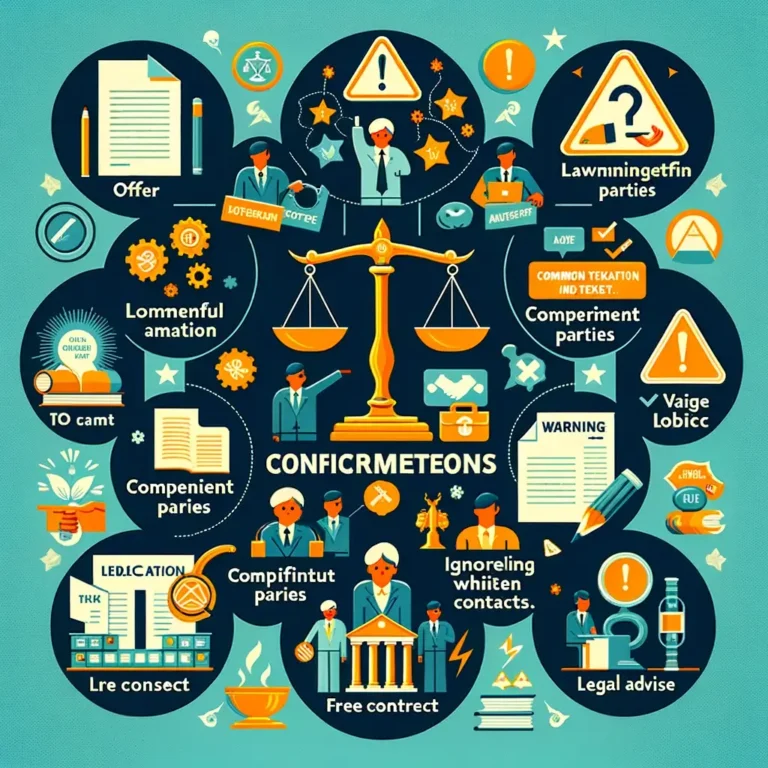In this article we have explained about Legal Framework For Resolving Disputes In Blockchain-based Smart Contracts In India
Introduction to Smart Contracts and Blockchain in India
In today’s digital age, India is rapidly embracing blockchain technology, and with it, smart contracts have become increasingly popular. Smart contracts are agreements stored on a blockchain that automatically execute transactions when predefined conditions are met. These digital contracts promise to revolutionize various sectors by making transactions more secure, transparent, and efficient. However, as with any emerging technology, they also present new challenges, particularly in the legal realm. Understanding the legal framework for resolving disputes in blockchain-based smart contracts is crucial for individuals and businesses in India.
Understanding Smart Contracts and Blockchain
What Are Smart Contracts?
Smart contracts are digital contracts coded into a blockchain. Unlike traditional contracts, they do not require intermediaries to validate or enforce them. When the conditions written into the contract are met, the agreement executes itself.
The Role of Blockchain
Blockchain serves as the foundation for smart contracts. It is a decentralized ledger that records transactions across multiple computers, ensuring that any recorded data cannot be altered retroactively. This technology provides a high level of security and transparency for smart contracts.
Legal Framework For Resolving Disputes In Blockchain-based Smart Contracts In India
Current Legal Status
As of my last update, India does not have specific legislation that directly addresses smart contracts or blockchain technology. The legal status of smart contracts is somewhat ambiguous, falling under the broad umbrella of electronic contracts, which are recognized and enforceable under the Indian Contract Act, 1872, provided they meet all the requirements of a valid contract.
Information Technology Act, 2000
The Information Technology Act, 2000, plays a significant role in the context of smart contracts. It provides legal recognition to electronic records and digital signatures, which can be argued to extend to blockchain transactions and smart contracts. However, the Act does not explicitly mention blockchain or smart contracts, leaving room for legal interpretation.
Resolving Disputes in Smart Contracts
Challenges in Dispute Resolution
Dispute resolution for blockchain-based smart contracts presents unique challenges. The decentralized nature of blockchain means there’s no central authority to oversee or intervene in disputes. Furthermore, the immutable nature of blockchain records means that once a transaction is executed, it cannot be easily reversed.
Arbitration and Mediation
Arbitration and mediation emerge as viable solutions for resolving disputes in smart contracts. These alternative dispute resolution (ADR) mechanisms can offer a more flexible and tech-savvy approach, necessary for dealing with disputes in the blockchain context. India’s Arbitration and Conciliation Act, 1996, could potentially apply to smart contract disputes if the contract includes an arbitration clause.
Role of Indian Courts
In cases where arbitration or mediation is not viable, Indian courts may have jurisdiction over disputes involving smart contracts, especially when the dispute involves aspects outside the blockchain, such as performance issues not covered by the digital contract. The courts could interpret smart contracts within the framework of electronic contracts under the Indian Contract Act and the Information Technology Act.
Future Directions and Recommendations
Given the growing prominence of blockchain and smart contracts, there is a pressing need for clearer regulations and legal frameworks specifically tailored to address the challenges and nuances of digital contracts. Recommendations for future legal reforms in India include:
- Developing specific legislation that recognizes and regulates blockchain technology and smart contracts.
- Establishing guidelines for the enforceability of smart contracts, including the conditions under which they can be overridden or disputed.
- Encouraging the use of ADR mechanisms specifically designed for blockchain disputes, including the establishment of specialized arbitration panels or online dispute resolution (ODR) platforms.
Conclusion
The integration of blockchain technology and smart contracts into the Indian legal framework is an ongoing process that requires careful consideration and adaptation. While current laws provide a basis for the recognition and enforceability of electronic contracts, specific regulations addressing the unique aspects of blockchain and smart contracts are needed. As India continues to advance in the digital realm, updating and refining the legal framework to accommodate these innovations will be crucial for fostering growth, security, and fairness in the digital economy.
FAQ on Legal Framework for Resolving Disputes in Blockchain-based Smart Contracts in India
1. What is a smart contract?
A smart contract is a digital contract that is coded into a blockchain, automatically executing transactions when predefined conditions are met.
2. Is blockchain technology legal in India?
Yes, blockchain technology is legal in India, although specific regulations governing its use are still developing.
3. Are smart contracts recognized by Indian law?
Smart contracts can be considered under the ambit of electronic contracts, which are recognized by Indian law, particularly under the Indian Contract Act, 1872, and the Information Technology Act, 2000.
4. Can smart contracts be enforced in Indian courts?
Yes, smart contracts, like any electronic contract, can be enforced in Indian courts if they meet the requirements of a valid contract under the Indian Contract Act.
5. What challenges exist in resolving disputes in smart contracts?
The main challenges include the decentralized nature of blockchain, the immutability of blockchain records, and the lack of specific legal regulations for smart contracts.
6. What is the role of the Information Technology Act, 2000, in smart contracts?
This act provides legal recognition to electronic records and digital signatures, which can extend to transactions executed via blockchain and smart contracts.
7. Can arbitration be used to resolve smart contract disputes?
Yes, arbitration, as well as mediation, can be effective in resolving disputes arising from smart contracts, especially if the contract includes an arbitration clause.
8. Are there any specific laws for smart contracts in India?
As of the last update, India does not have specific legislation that directly addresses smart contracts. They fall under the broader category of electronic contracts.
9. How can disputes in smart contracts be prevented?
Clear contract terms, thorough testing of contract code, and including dispute resolution mechanisms within the contract can help prevent disputes.
10. What happens if there’s a flaw in a smart contract code?
If there’s a flaw, it can lead to disputes or unintended consequences. Resolving such issues may require legal intervention or mutual agreement to amend or rectify the contract.
11. Can smart contracts be amended once deployed?
Amending a smart contract after deployment is difficult, especially on immutable blockchains. However, parties can agree on mechanisms for upgrades or changes prior to deployment.
12. What is decentralized dispute resolution?
Decentralized dispute resolution refers to resolving disputes through decentralized platforms or mechanisms, often utilizing blockchain technology and not relying on traditional courts or arbitration bodies.
13. Is digital signature valid in smart contracts?
Yes, digital signatures are valid and legally recognized in India, including their use in smart contracts, under the Information Technology Act, 2000.
14. Can a smart contract execute transactions without human intervention?
Yes, once the conditions coded into a smart contract are met, it can execute transactions automatically without human intervention.
15. How does blockchain technology support smart contracts?
Blockchain provides a secure, transparent, and immutable ledger for recording transactions, which supports the automatic execution and verification of smart contracts.
16. What sectors can benefit from smart contracts in India?
Sectors like finance, real estate, supply chain management, and healthcare can benefit from the efficiency, security, and transparency of smart contracts.
17. What are the prerequisites for a smart contract to be legally binding in India?
It must meet the requirements of a valid contract as per the Indian Contract Act, including competent parties, lawful consideration, lawful object, and free consent.
18. How are international smart contract disputes handled in India?
International disputes may be subject to arbitration if agreed upon, or Indian courts may have jurisdiction if the contract has a connection to India.
19. Can privacy concerns arise in smart contracts?
Yes, smart contracts on public blockchains may raise privacy concerns due to the transparency of blockchain transactions. Privacy-oriented blockchains or encryption methods can mitigate this issue.
20. What role does consensus play in blockchain and smart contracts?
Consensus mechanisms validate transactions and ensure all parties on the blockchain agree on the state of the network, which is crucial for the execution of smart contracts.
21. How can one ensure the security of a smart contract?
Ensuring security involves thorough testing, audits by experienced blockchain developers, and following best practices in smart contract development.
22. Can smart contracts replace traditional contracts?
While smart contracts offer many advantages, they may not replace traditional contracts entirely, especially in complex or nuanced legal situations.
23. What happens if a party disagrees with a smart contract’s execution?
Disagreements may require legal intervention, arbitration, or mediation, depending on the dispute resolution mechanisms specified in the contract.
24. Are there any guidelines for drafting smart contracts in India?
Currently, there are no official guidelines specifically for drafting smart contracts in India, but general principles of contract law apply.
25. How can one learn about smart contract development and its legal aspects in India?
One can learn through online courses, workshops, and legal publications focused on blockchain technology, smart contracts, and electronic contract law in India.
26. What future regulations can be expected for smart contracts in India?
Future regulations may include specific guidelines for the creation, execution, and dispute resolution of smart contracts to address the unique challenges they present.
27. Can smart contracts be hacked?
Yes, like any digital technology, smart contracts are susceptible to hacking if there are vulnerabilities in the contract code or the blockchain platform.
28. What is the significance of smart contracts in digital transactions?
Smart contracts automate and secure digital transactions, reducing the need for intermediaries and enhancing efficiency and transparency.
29. Can smart contracts be used for government contracts in India?
While there’s potential, the use of smart contracts for government contracts would require clear legal and regulatory frameworks to address security, privacy, and enforcement issues.
30. Where can one find legal advice on smart contracts in India?
Legal advice can be obtained from law firms and legal professionals specializing in technology law, blockchain, and electronic commerce.
















